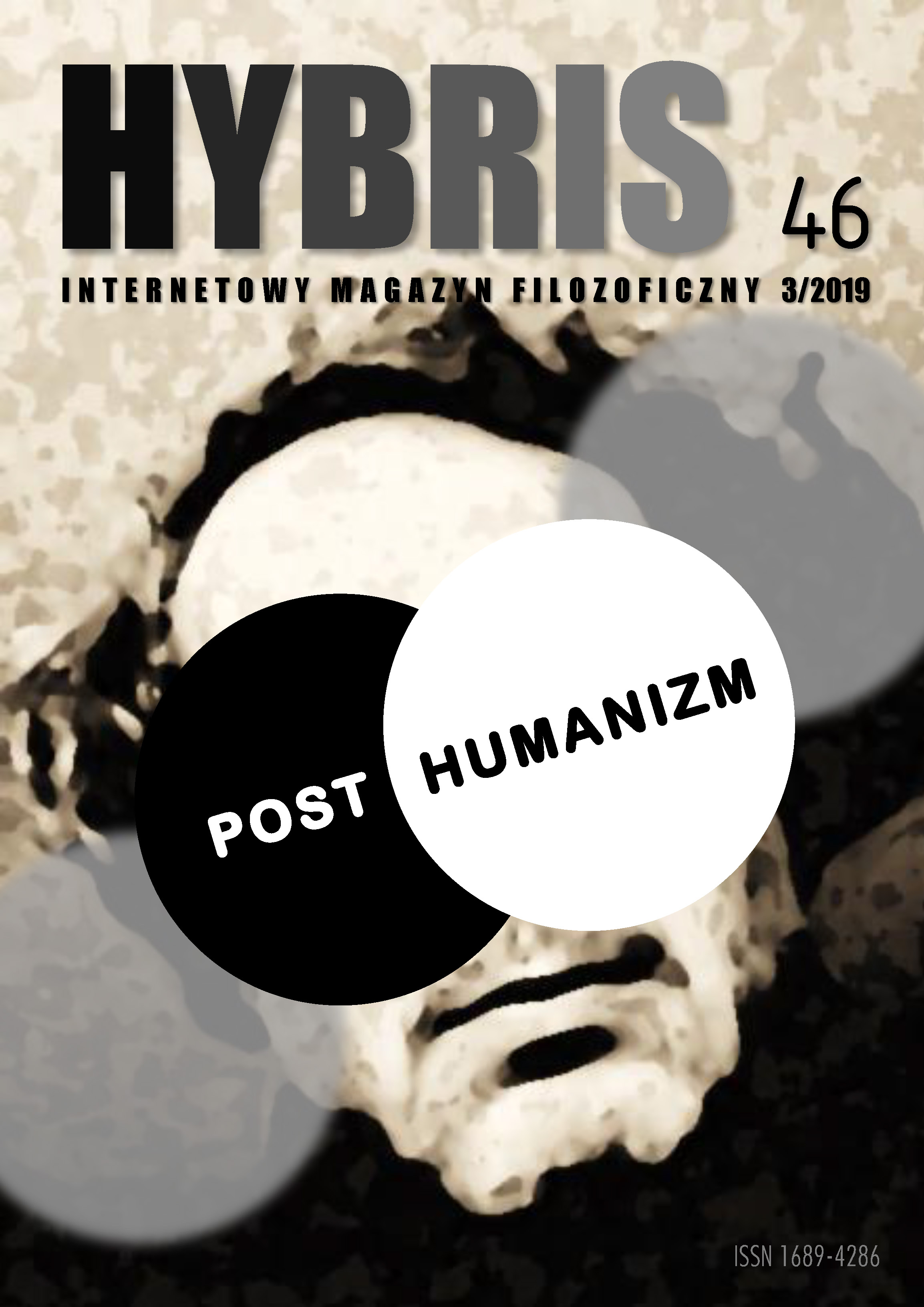Praca i słowa: humanizm socjalistyczny Karola Marksa w świetle foucaultowskiej tezy o kresie człowieka
DOI:
https://doi.org/10.18778/1689-4286.46.06Słowa kluczowe:
Marks, Foucault, humanizm, posthumanizm, praca, kres człowiekaAbstrakt
The aim of this paper is to compare philosophical methodologies of Karl Marx and Michel Foucault. The comparison is centered on the problem of humanism: whereas socialist humanism can be seen as a core belief of Marx's historical materialism, Foucault on the other hand is often described as the one of the most fierce critics of humanism. Presented analysis consists of: reconstruction of Marx's notion of work and its ontological and epistemological consequences, reconstruction of Foucault's critique of Marx's outlooks presented in The Order of Things and analysis of Foucault's thesis about the death of men. The author points out that the philosophical methodologies of Marx and Foucault are in fact similar to a large degree, as both philosophers can be described as materialists, nominalists. Furthermore, both for Marx and Foucault the human subject is to be thought as historical and socially manufactured being.
Bibliografia
Althusser, L. (2009). W imię Marksa. Warszawa: Wydawnictwo Krytyki Politycznej.
Zobacz w Google Scholar
Balibar, É. (2005). Foucault i Marks: stawka nominalizmu. Lewą nogą, 17, 332-353.
Zobacz w Google Scholar
Deleuze, G. (1999). Foucault. Wrocław: Wydawnictwo Naukowe Dolnośląskiej Szkoły Wyższej Edukacji TWP we Wrocławiu.
Zobacz w Google Scholar
Engels, F. (1950). Ludwik Feuerbach i zmierzch klasycznej filozofii niemieckiej. Warszawa: Książka i Wiedza.
Zobacz w Google Scholar
Feuerbach, L. (1959). O istocie chrześcijaństwa. Warszawa: PWN.
Zobacz w Google Scholar
Foucault, M. (1977). Archeologia wiedzy. Warszawa: Państwowy Instytut Wydawniczy.
Zobacz w Google Scholar
Foucault, M. (1998). Podmiot i władza. Lewą nogą, 10, 174-192.
Zobacz w Google Scholar
Foucault, M. (2000). Filozofia, historia, polityka. Wybór pism. Warszawa: WN PWN.
Zobacz w Google Scholar
Foucault, M. (2006). Słowa i rzeczy. Archeologia nauk humanistycznych. Gdańsk: słowo/obraz terytoria.
Zobacz w Google Scholar
Herer, M. (2012). Filozofia aktualności za Nietzschem i Marksem. Warszawa: WN PWN.
Zobacz w Google Scholar
Kołakowski, L. (1988). Główne nurty marksizmu: powstanie – rozwój – rozkład. Londyn: Wydawnictwo „Aneks”.
Zobacz w Google Scholar
Lukács, G. (1988). Historia i świadomość klasowa. Studia o marksistowskiej dialektyce. Warszawa: PWN.
Zobacz w Google Scholar
Marks, K. (1951). Kapitał. Krytyka ekonomii politycznej. Warszawa: Książka i Wiedza.
Zobacz w Google Scholar
Marks, K. (1960). Rękopisy ekonomiczno-filozoficzne z 1844 r. W: K. Marks, F. Engels, Dzieła, t. 1. Warszawa: Książka i Wiedza.
Zobacz w Google Scholar
Marks, K. (1961). Tezy o Feuerbachu. W: K. Marks, F. Engels, Dzieła, t. 3. Warszawa: Książka i Wiedza.
Zobacz w Google Scholar
Marks, K., Engels, F. (1961). Ideologia niemiecka, W: K. Marks, F. Engels, Dzieła, t. 3. Warszawa: Książka i Wiedza.
Zobacz w Google Scholar
Nietzsche, F. (1983). Z genealogii moralności pismo polemiczne. Kraków: Universitas.
Zobacz w Google Scholar
Nietzsche, F. (2004). Tako rzecze Zaratustra. Książka dla wszystkich i dla nikogo. Kęty: Wydawnictwo ANTYK.
Zobacz w Google Scholar
Pobrania
Opublikowane
Jak cytować
Numer
Dział
Licencja

Utwór dostępny jest na licencji Creative Commons Uznanie autorstwa – Użycie niekomercyjne – Bez utworów zależnych 4.0 Międzynarodowe.






